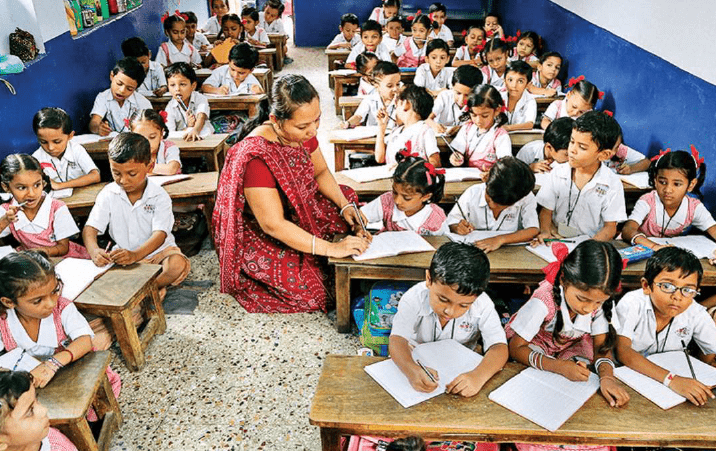At 70, when most people cozy up to retired life, K V Ramani is busy running around and working on an audacious project — starting a private university with the best brains from the industry and academia with a challenge to put it in an exclusive global league in 10 years. After co-founding Nasscom, Future Soft and Hughes Software, Ramani is now ready with his next project — Sai University, one of the two private universities approved by the Tamil Nadu government. In an interview with Rajesh Chandramouli, he talks about his plans for the institution that is backed by industry stalwarts including N R Narayana Murthy, Anil Kakodkar, Kasturirangan, and has an academic team lead by Jamshed Barucha, former dean of Dartmouth.
Q: Are you being too ambitious in an overcrowded space?
We are used to creating institutions of global eminence. We have seen it grow from zero in IT, another example is healthcare. Today healthcare has developed so much that foreigners are coming to India to get treatment. You’re getting the same standard of care at a fraction of the cost compared to western countries along with better service. Post-operative patient care in India is better than what you get in developed countries.
The same model I’ve to follow here in the education sector. Today, there are no global education universities in India. Even IITs and IIMs are not in the top 100 globally, so I said If I do something under the name of Sai, it has to be the world’s best. Sai University’s vision statement is to become a globally eminent university.
: What went into your analysis?
We hired KPMG to give a detailed report on the scope and background of the project. Then I approached the TN government in January 2018 with the early stages for permission to start a university and also 200 acres of land. By July 2018 the law for setting up private universities in state was passed.
Q: Why did you go quiet thereafter
At that time, there was some opposition in the assembly. Vested interest groups who were running education institutions did not want to allow a new private university to come up because they thought it would be a threat to their business. Therefore, we went off the radar for some time. We have now complied with with all conditions for private universities according to the law. We purchased 105 acres of land at Payanur on Old Mahabalipuram Road inside One-Hub Chennai, an Ascendas promoted property, because we wanted it to be away from the city. We have begun construction.
Q: What will be the investments and returns?
The project size is `700 crore and out of that `300 crore will be funded by the Trust and for the rest of the funds we are going to raise it from other institutions. The university will run as education as service, not as a business. Today engineering institutions, medical colleges and arts and science colleges are charging much more than the costs. The money is collected in several ways from students. We are not here for profit. According to our 10-year plan, we will break even by the sixth year.
Q: How expensive will it be to study here?
The quality of education will be better than anywhere in this country. We should be in the international league from India. It will be more expensive than Indian schools, but definitely much less than sending kids abroad to study.
On the 100-acre campus we are going to build facilities for 20,000 students to be accommodated. To improve the quality of education 50% of our faculty will be from abroad. They will either be taking classes online or offline. We have started our programmes for this year. We are starting undergraduate courses in liberal arts and science and computing data sciences where we operate artificial intelligence, machine learning and robotics and law. We are yet to decide on the fees, maybe `6 lakh per year. That shows good quality education is expensive.
Q: Are you for the elite?
It will be an elite university for education, but not for elite students alone. Our law provides for 35% for TN domiciliary. The state’s reservation policy will be followed, which is 23%. From a social sense we are not elite. It is not for the rich. We will meet the social objectives of the state. In addition, if students cannot afford fees, we will give scholarships from the Trust.
Q: How is your admission process?
The board of studies will be considering school marks, whatever is available. In addition to that an essay or statement of purpose will be needed. We will consider any standard test like SAT or Pearson. If the student wants, the student will get to write our entrance test. All the courses will be common in the first six months. In the next six months they can attend other courses. A student in computing sciences can take economics and vice-versa. This is inter-disciplinary.and multi-disciplinary education.
Q: Don’t you think children will be confused with credits?
Today the world is extremely competitive, only the top 90% get opportunities. To be among the best we need to compete and be innovative. You must allow the children to do a double major shift or shift from a major to minor or vice-versa. The present system has a fundamental design mistake. They are selling engineering packages and arts packages.
Q: What kind of faculty are you considering?
We have an international advisory board, which has been created by our vice-chancellor to bring in the best of global teachers. They can be visiting faculty or online/hybrid. We want 50% of faculty to be from abroad. We have faculty from Stanford and Harvard who will teach students.
Courtesy – Times of india








